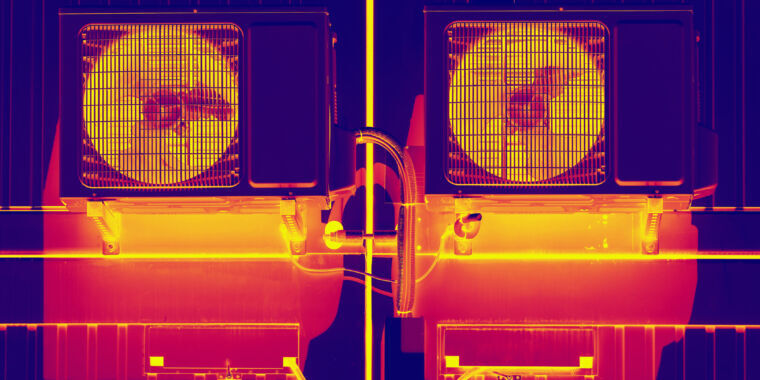Nine states are teaming up to accelerate adoption of this climate-friendly device.
Death is coming for the old-school gas furnace—and its killer is the humble heat pump. They’re already outselling gas furnaces in the US, and now a coalition of states has signed an agreement to supercharge the gas-to-electric transition by making it as cheap and easy as possible for their residents to switch.
Nine states have signed a memorandum of understanding that says that heat pumps should make up at least 65 percent of residential heating, air conditioning, and water-heating shipments by 2030. (“Shipments” here means systems manufactured, a proxy for how many are actually sold.) By 2040, these states—California, Colorado, Maine, Maryland, Massachusetts, New Jersey, New York, Oregon, and Rhode Island—are aiming for 90 percent of those shipments to be heat pumps.
“It’s a really strong signal from states that they’re committed to accelerating this transition to zero-emissions residential buildings,” says Emily Levin, senior policy adviser at the Northeast States for Coordinated Air Use Management (NESCAUM), an association of air-quality agencies that facilitated the agreement. The states will collaborate, for instance, in pursuing federal funding, developing standards for the rollout of heat pumps, and laying out an overarching plan “with priority actions to support widespread electrification of residential buildings.”



The heat pump is the cheap part. You have to reengineer your hvac. It’s fucking expensive.
There are a lot of variables, but often this isn’t the case… If you have a traditional gas furnace stack and ac unit it’s often a drop in replacement for the AC. The ducting and air handler can be reused (especially if you’re in a cold climate, the furnace can be utilized when the temp drops below the optimal operating temperature for the heat pump)
For some homes it really is an affordable option.
I mean the quotes we got were all in excess of a hundred thousand and the standard hvac is much, much less.
Like I said, there are a lot of variables.